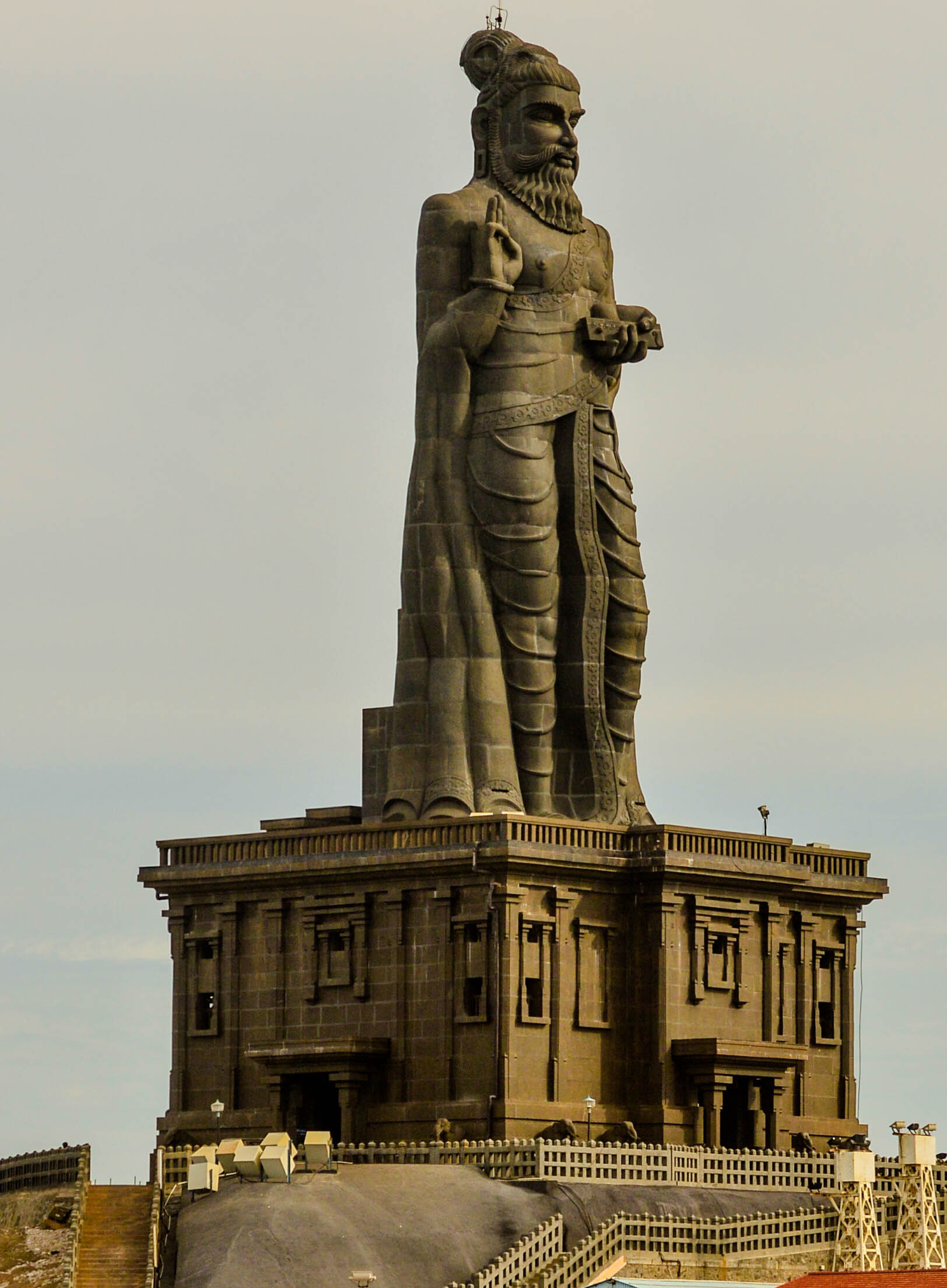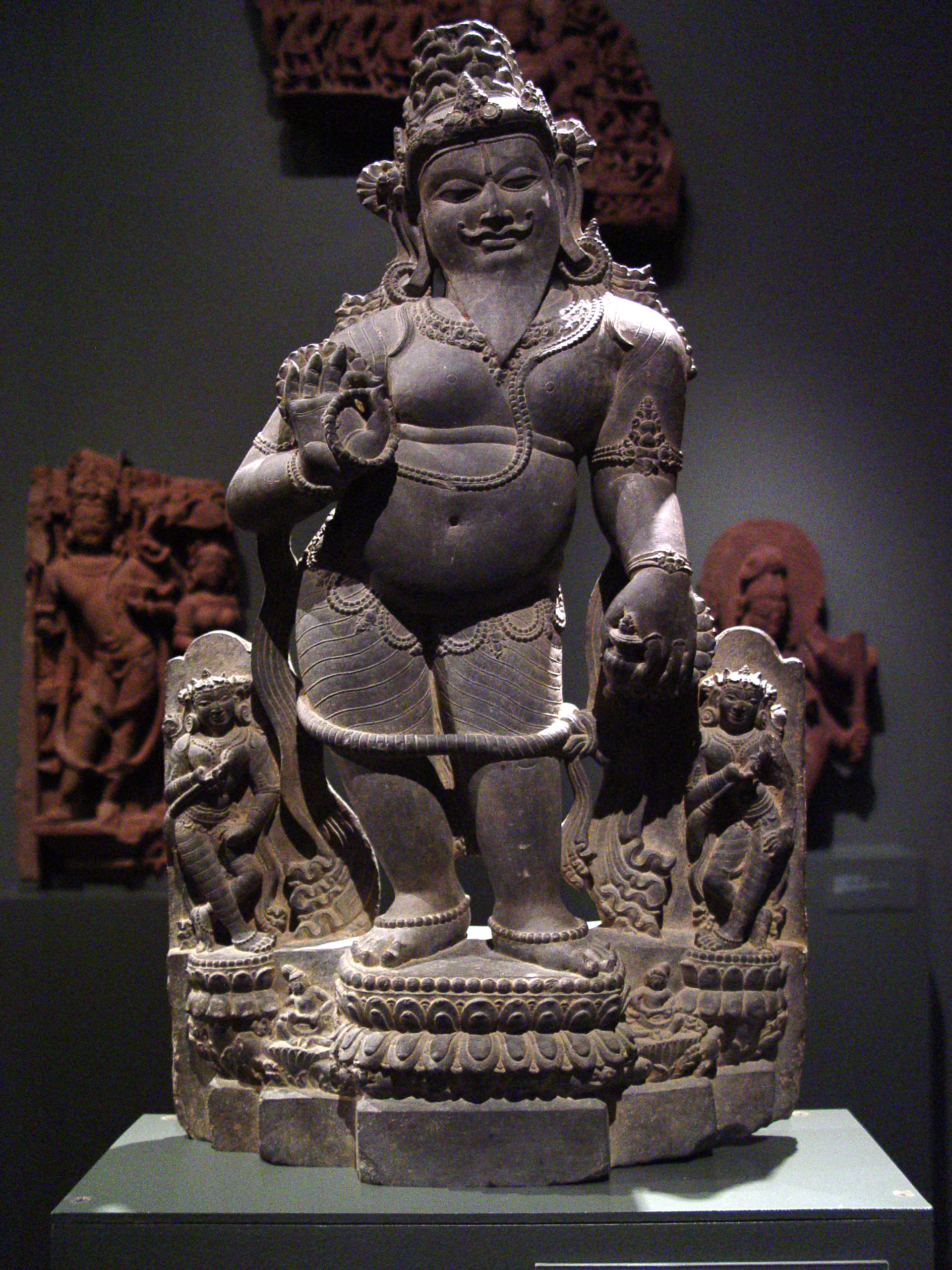|
Tirukkuṟaḷ
The ''Tirukkuṟaḷ'' ( ta, திருக்குறள், lit=sacred verses), or shortly the ''Kural'' ( ta, குறள்), is a classic Tamil language text consisting of 1,330 short couplets, or kurals, of seven words each. The text is divided into three books with aphoristic teachings on virtue (''aram''), wealth (''porul'') and love (''inbam''), respectively. Considered one of the greatest works ever written on ethics and morality, it is known for its universality and secular nature. Its authorship is traditionally attributed to Valluvar, also known in full as Thiruvalluvar. The text has been dated variously from 300 BCE to 5th century CE. The traditional accounts describe it as the last work of the third Sangam, but linguistic analysis suggests a later date of 450 to 500 CE and that it was composed after the Sangam period. The Kural text is among the earliest systems of Indian epistemology and metaphysics. The Kural is traditionally praised with epithets and alte ... [...More Info...] [...Related Items...] OR: [Wikipedia] [Google] [Baidu] |
Valluvar
Thiruvalluvar (Tamil language, Tamil: திருவள்ளுவர்), commonly known as Valluvar, was a celebrated Tamil people, Tamil poet and philosopher. He is best known as the author of the ''Tirukkuṟaḷ'', a collection of couplets on ethics, political and economical matters, and love. The text is considered an exceptional and widely cherished work of Tamil literature. Almost no authentic information is available about Valluvar, states Kamil Zvelebil – a scholar of Tamil literature. His life and likely background are variously inferred from his literary works by different biographers. There are unauthentic hagiographic and legendary accounts of Valluvar's life, and all major Indian religions, as well as Christian missionaries of the 19th century, have tried to claim him as secretly inspired (''crypto-'') or originally belonging to their tradition. Little is known with certainty about his family background, religious affiliation, or birthplace. He is believed t ... [...More Info...] [...Related Items...] OR: [Wikipedia] [Google] [Baidu] |
Thiruvalluvar
Thiruvalluvar (Tamil: திருவள்ளுவர்), commonly known as Valluvar, was a celebrated Tamil poet and philosopher. He is best known as the author of the ''Tirukkuṟaḷ'', a collection of couplets on ethics, political and economical matters, and love. The text is considered an exceptional and widely cherished work of Tamil literature. Almost no authentic information is available about Valluvar, states Kamil Zvelebil – a scholar of Tamil literature. His life and likely background are variously inferred from his literary works by different biographers. There are unauthentic hagiographic and legendary accounts of Valluvar's life, and all major Indian religions, as well as Christian missionaries of the 19th century, have tried to claim him as secretly inspired (''crypto-'') or originally belonging to their tradition. Little is known with certainty about his family background, religious affiliation, or birthplace. He is believed to have lived at least in the t ... [...More Info...] [...Related Items...] OR: [Wikipedia] [Google] [Baidu] |
Sangam Literature
The Sangam literature (Tamil: சங்க இலக்கியம், ''caṅka ilakkiyam'';) historically known as 'the poetry of the noble ones' (Tamil: சான்றோர் செய்யுள், ''Cāṉṟōr ceyyuḷ'') connotes the ancient Tamil literature and is the earliest known literature of South India. The Tamil tradition and legends link it to three literary gatherings around Madurai and Kapāṭapuram ( Pandyan capitals): the first over 4,440 years, the second over 3,700 years, and the third over 1,850 years before the start of the common era. Scholars consider this Tamil tradition-based chronology as ahistorical and mythical. Most scholars suggest the historical Sangam literature era spanned from c. 300 BCE to 300 CE, while others variously place this early classical Tamil literature period a bit later and more narrowly but all before 300 CE. According to Kamil Zvelebil – a Tamil literature and history scholar, the most acceptable range for the Sangam l ... [...More Info...] [...Related Items...] OR: [Wikipedia] [Google] [Baidu] |
Tirukkural Translations
Tirukkural, also known as the Kural, an ancient Indian treatise on the Secular ethics, ethics and morality of the commoner, is one of the List of literary works by number of translations, most widely translated non-religious works in the world. Authored by the ancient Tamil language, Tamil poet-philosopher Thiruvalluvar, it has been translated into at least 42 world languages, with about 57 different renderings in the English language alone. Beginning of translations The Kural text, considered to have been written in the 1st century BCE, remained unknown to the outside world for close to one and a half millennia. The first translation of the Kural text appeared in Malayalam in 1595 CE under the title ''Tirukkural Bhasha'' by an unknown author. It was a prose rendering of the entire Kural, written closely to the spoken Malayalam of that time. However, again, this unpublished manuscript remained obscure until it was first reported by the Annual Report of the Cochin Archeological ... [...More Info...] [...Related Items...] OR: [Wikipedia] [Google] [Baidu] |
Tamil Nadu
Tamil Nadu (; , TN) is a States and union territories of India, state in southern India. It is the List of states and union territories of India by area, tenth largest Indian state by area and the List of states and union territories of India by population, sixth largest by population. Its capital and largest city is Chennai. Tamil Nadu is the home of the Tamil people, whose Tamil language—one of the longest surviving Classical languages of India, classical languages in the world—is widely spoken in the state and serves as its official language. The state lies in the southernmost part of the Indian peninsula, and is bordered by the Indian union territory of Puducherry (union territory), Puducherry and the states of Kerala, Karnataka, and Andhra Pradesh, as well as an international maritime border with Sri Lanka. It is bounded by the Western Ghats in the west, the Eastern Ghats in the north, the Bay of Bengal in the east, the Gulf of Mannar and Palk Strait to the south-eas ... [...More Info...] [...Related Items...] OR: [Wikipedia] [Google] [Baidu] |
List Of Literary Works By Number Of Translations
This is a list of the most translated literary works (including novels, plays, series, collections of poems or short stories, and essays and other forms of literary non-fiction) sorted by the number of languages into which they have been translated. Only translations published by established, independent publishers are taken into account, not people self-publishing translations (real or automatic) via publish-on-demand or on websites, to avoid artificially inflated counts. See also * List of most translated individual authors *List of best-selling books *Index Translationum The Index Translationum is UNESCO's database of book translations. Books have been translated for thousands of years, with no central record of the fact. The League of Nations established a record of translations in 1932. In 1946, the United Nation ... References External linksTranslated works' and authors' database at the UNESCO website [...More Info...] [...Related Items...] OR: [Wikipedia] [Google] [Baidu] |
Yu Hsi
Yu Hsi (born Hung Ching Yu) (born March 16, 1951) is a Taiwanese Tamil poet and scholar, who has translated the Tirukkural and the poems of Subramaniya Bharathi and poet Bharathidasan in Mandarin. He is the founder president of the Tamil Sangam in Taiwan. He has received various awards, including awards from Seoul World Academy of Arts and Culture (2004), Thiruvalluvar Award (2014), and a felicitation from former President of India A. P. J. Abdul Kalam. Personal life Yu Hsi was born Hung Ching Yu in Fangyuan township, Taiwan, on 16 March 1951. He obtained a doctorate in letters. He has authored more than 60 books. In a unique literary style, he wrote his fifth long-form novel on tradition scrolls, which contained almost 600,000 words. He has also translated Tamil classic Thirukkural, poems of Bharathiyar and Bharathidasan and Avvaiyar's "Aathichoodi" (containing morals) into Mandarin. He has been ordained a Buddhist monk as Dao Yi. Fascination toward Indian religion and philo ... [...More Info...] [...Related Items...] OR: [Wikipedia] [Google] [Baidu] |
Alexander Piatigorsky
Alexander Moiseyevich Piatigorsky (russian: Алекса́ндр Моисе́евич Пятиго́рский; 30 January 192925 October 2009) was a Soviet dissident, Russian philosopher, scholar of Indian philosophy and culture, historian, philologist, semiotician, writer. Well-versed in the study of language, he knew Sanskrit, Tamil, Pali, Tibetan, German, Russian, French, Italian and English. In an obituary appearing in the English-language newspaper The Guardian, he was cited as "a man who was widely considered to be one of the more significant thinkers of the age and Russia's greatest philosopher." On Russian television stations he was mourned as "the greatest Russian philosopher." School of Oriental and African Studies (SOAS) Alumni Online Community News. What's New. "Remembering 'the Greatest Russian Philosopher'", December 2009. [...More Info...] [...Related Items...] OR: [Wikipedia] [Google] [Baidu] |
Kambar (poet)
Kambar or Kavichakravarthy Kamban (1180 CE–1250 CE) was an Indian Tamils, Tamil poet and the author of the Ramavataram, popularly known as ''Kambaramayanam'', the Tamil version of the epic Ramayana.The Cyclopaedia of India and of Eastern and Southern Asia By Edward Balfour Kambar also authored other literary works in Tamil language, Tamil, such as Thirukkai Vazhakkam, ''Erezhupathu'', Silaiyezhupathu, ''Kangai Puranam'', ''Sadagopar Anthathi'' and ''Saraswati Anthathi''. Life Kambar was born in Therazhundur, Thanjavur district, Therazhundur. His father was a wealthy farmer named Sadaiyepa Vallal. He grew up the Chola dynasty, Chola Empire under the reign of Kulothunga Chola III, Kulothunga III. Having heard of this talented bard, Kulothunga summoned him to his court and honoured him with the title ''Kavi Chakravarty'' (''The Emperor of Poets''). Kambar flourished in Therazhundur, a village in the culturally rich Nagapattinam District in the modern state of Tamil Nadu in Sou ... [...More Info...] [...Related Items...] OR: [Wikipedia] [Google] [Baidu] |
Karl Graul
Karl Graul (6 February 1814 – 10 November 1864) was a leader of Leipzig Lutheran mission and a Tamil scholar. He was born in a poor weaver family in Germany. He moved to India as the director of the Lutheran Leipzig Mission in 1849 and there he mastered Tamil. Graul was one of the foremost figures in missiology. His approach towards caste system was considered to be too lenient by his critics since he considered that caste system would fade on its own accord and Christian organizations need not interfere with local traditions. He also advocated the supremacy of Lutheranism over other Christian denominations and found it hard to cooperate with Anglicans in India. Early life Karl Graul was born in Wörlitz, Duchy of Anhalt, into a poor weaver's family. In spite of his poor background he received good education in classical and modern languages as well as in theology. However, as for as mission and missiology is concerned he was entirely self-taught.Biographical Dictionary ... [...More Info...] [...Related Items...] OR: [Wikipedia] [Google] [Baidu] |
Ramalinga Swamigal
Thiruvarutprakasa Vallalār Chidambaram Ramalingam (5 October 1823 – 30 January 1874), commonly known in India and across the world as Vallalār, Ramalinga Swamigal and Ramalinga Adigal, was one of the most famous Tamil Saints and also one of the greatest Tamil poets of the 19th century and belongs to a line of Tamil saints known as " gnana siddhars" (gnana means higher wisdom). The ''Samarasa Suddha Sanmarga Sathiya Sangam'' was spread and passed on by him not only in theory but mainly in practice by his own way of living which by itself is an inspiration for his followers. Through the notion of ''Suddha Sanmarga Sangam'', the saint endeavored to eliminate the caste system. According to Suddha Sanmarga, the prime aspects of human life should be love connected with charity and divine practice leading to achievement of pure knowledge. Ramalinga advocated the concept of worshipping the flame of a lighted lamp as a symbol of the eternal power. Early life Rāmalingam's parents wer ... [...More Info...] [...Related Items...] OR: [Wikipedia] [Google] [Baidu] |






